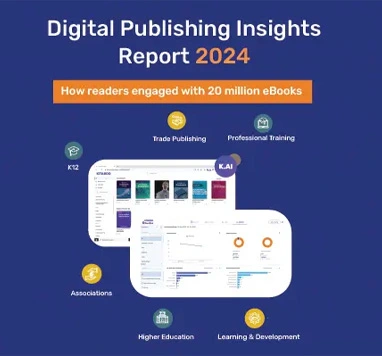
4 Digital Publishing Challenges and How To Overcome Them
Developments in digital technology are pushing publishers to take the digital route to reach an audience that is increasingly using its smartphones, tablets and the Internet to find and access content. However, digital publishing has its own set of challenges that need to be addressed in order to succeed in a market that has become extremely fragmented over the years.
Quick overview of digital publishing challenges –
- Providing multi-channel access
- Create engaging content
- Creating bite-sized content
- Protecting content copyright
Top 4 Digital Publishing Challenges and How To Overcome Them
Providing Multi-channel Access: Publishers need to think about how to repurpose their print content for multiple access points such as eReaders, social media, web and mobile apps, and desktops. eBook platforms can be used to convert an existing library of print books into fixed-layout or reflowable format eBooks for easy accessibility across all channels. These independent content creation platforms allow publishers to repurpose their content from a centralized, usually, cloud-based source, thereby ensuring a more streamlined workflow.
Create Engaging Content: Today, over 80% of digital content is accessed on smartphones. For publishers, this means that they have to provide content that fits the device and is also engaging. Augmented reality is being widely used to make content engaging and supportive to the varied needs of the learners. Several eBook platforms allow publishers to add AR elements to their content. To illustrate with an example, they can add audio/visual aids and 3D models to a lesson on human anatomy to make the chapter more lifelike and relevant. Most children today have smartphones. Using an AR app on their phones they can point to the page and view these AR features. Needless to say, this kind of multisensory learning creates a lasting impact and ensures learning for a lifetime.
Creating Bite-sized Content: Another challenge facing the publishers is that they need to ensure their content is constantly updated to reinforce value and relevancy. One way to do is to create nugget-sized content which they can consume while they commute or during their breaks from work. These micro-nuggets are standalone in themselves and can be easily updated. Another advantage is that this short-form content can encourage users to delve deeper into the publisher’s long-term content in archives or other digital editions.
Protecting Content Copyright: Content is easily available and shareable on the Internet, a fact which makes it impossible to stop piracy online. Digital Rights Management, or DRM, is a technology that focusses on protecting the copyright of content, making it impossible to steal it in the first place. DRM helps to control access to copyrighted material. As a case point, a publisher can sell a DRM-protected ebook to a reader, which means that the ebook will be encrypted to protect the content itself; and secondly, it will have an authentication system to ensure that only the authorized user can unlock the ebook.
To sum up, then, publishers have no choice but to take the digital route to survive in an increasingly fragmented market where content is consumed through multiple touch points. Yet, going digital is easier said than done. There are the challenges of constantly creating and updating content, ensuring it remains relevant and engaging and then protecting copyright to ensure there is no loss of revenue. As technology evolves, so will the challenges and so will the solutions. One way forward for publishers is to use eBook platforms that help publishers, brands and marketers create unique content, add multimedia features and copyright, and share across multiple platforms.
Discover how a mobile-first training platform can help your organization.
Kitaboo is a cloud-based platform to create, deliver & track mobile-first interactive training content.





